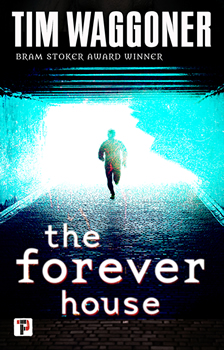April 27 – May 3: “Can you discuss the term ‘high-concept’ and provide examples?”

The term high-concept is often suggested to beginner writers as something to aim for in their work. This week we’re joined by ITW members Humphrey Hawksley, Cara Putman, Tim Waggoner, Richard Z. Santos, Katharine Schellman and Melissa Kosci as they discuss the term ‘high-concept’ and provide examples. Scroll down to the “comments” section to follow along. You won’t want to miss it!
 Melissa Kosci is a fourth-degree black belt in and certified instructor of Songahm Taekwondo. In her day job as a commercial property manager, she secretly notes personal quirks and funny situations, ready to tweak them into colorful additions for her books. She and Corey, her husband of twenty years, live in Florida, where they do their best not to melt in the sun.
Melissa Kosci is a fourth-degree black belt in and certified instructor of Songahm Taekwondo. In her day job as a commercial property manager, she secretly notes personal quirks and funny situations, ready to tweak them into colorful additions for her books. She and Corey, her husband of twenty years, live in Florida, where they do their best not to melt in the sun.
 Katharine Schellman lives and writes in the mountains of Virginia in the company of her husband, preschooler, and the many houseplants she keeps accidentally murdering. She was named one of BookPage’s 16 Women to Watch in 2020. The Body in the Garden is her debut novel.
Katharine Schellman lives and writes in the mountains of Virginia in the company of her husband, preschooler, and the many houseplants she keeps accidentally murdering. She was named one of BookPage’s 16 Women to Watch in 2020. The Body in the Garden is her debut novel.
 Richard Z. Santos received an MFA from Texas State University. He is a board member of The National Book Critics Circle, and his fiction, essays, and reviews have appeared in multiple publications, including The San Antonio Express-News, Kirkus Reviews, The Rumpus, The Morning News and The Texas Observer. Previously, he was a political campaign operative. A high school English teacher in Austin, Texas, this is his first novel.
Richard Z. Santos received an MFA from Texas State University. He is a board member of The National Book Critics Circle, and his fiction, essays, and reviews have appeared in multiple publications, including The San Antonio Express-News, Kirkus Reviews, The Rumpus, The Morning News and The Texas Observer. Previously, he was a political campaign operative. A high school English teacher in Austin, Texas, this is his first novel.
 Tim Waggoner has published nearly fifty novels and seven collections of short stories. He writes original dark fantasy and horror, as well as media tie-ins, and his articles on writing have appeared in numerous publications. He’s won the Bram Stoker Award, the Horror Writers Association’s Mentor of the Year Award, and he’s been a multiple finalist for both the Shirley Jackson Award and the Scribe Award. He’s also a full-time tenured professor who teaches creative writing at Sinclair College in Dayton, Ohio.
Tim Waggoner has published nearly fifty novels and seven collections of short stories. He writes original dark fantasy and horror, as well as media tie-ins, and his articles on writing have appeared in numerous publications. He’s won the Bram Stoker Award, the Horror Writers Association’s Mentor of the Year Award, and he’s been a multiple finalist for both the Shirley Jackson Award and the Scribe Award. He’s also a full-time tenured professor who teaches creative writing at Sinclair College in Dayton, Ohio.
 Cara Putman is the author of more than thirty legal thrillers, historical romances, and romantic suspense novels. She has won or been a finalist for honors including the ACFW Book of the Year and the Christian Retailing’s BEST Award. Cara graduated high school at sixteen, college at twenty, completed her law degree at twenty-seven, and received her MBA. She is a practicing attorney and teaches undergraduate and graduate law courses at a Big Ten business school.
Cara Putman is the author of more than thirty legal thrillers, historical romances, and romantic suspense novels. She has won or been a finalist for honors including the ACFW Book of the Year and the Christian Retailing’s BEST Award. Cara graduated high school at sixteen, college at twenty, completed her law degree at twenty-seven, and received her MBA. She is a practicing attorney and teaches undergraduate and graduate law courses at a Big Ten business school.
 Humphrey Hawksley is an author and foreign correspondent. His work with the BBC has taken him to crises all over the world, and he lectures widely at venues such as Center of Strategic and International Studies in D.C. and the RAND Corporation in California. MAN ON EDGE is the second in the much-praised Rake Ozenna series which was launched in 2018 with MAN ON ICE, set on the US-Russian border.
Humphrey Hawksley is an author and foreign correspondent. His work with the BBC has taken him to crises all over the world, and he lectures widely at venues such as Center of Strategic and International Studies in D.C. and the RAND Corporation in California. MAN ON EDGE is the second in the much-praised Rake Ozenna series which was launched in 2018 with MAN ON ICE, set on the US-Russian border.
- LAST GIRL MISSING with K.L. Murphy - July 25, 2024
- CHILD OF DUST with Yigal Zur - July 25, 2024
- THE RAVENWOOD CONSPIRACY with Michael Siverling - July 19, 2024
